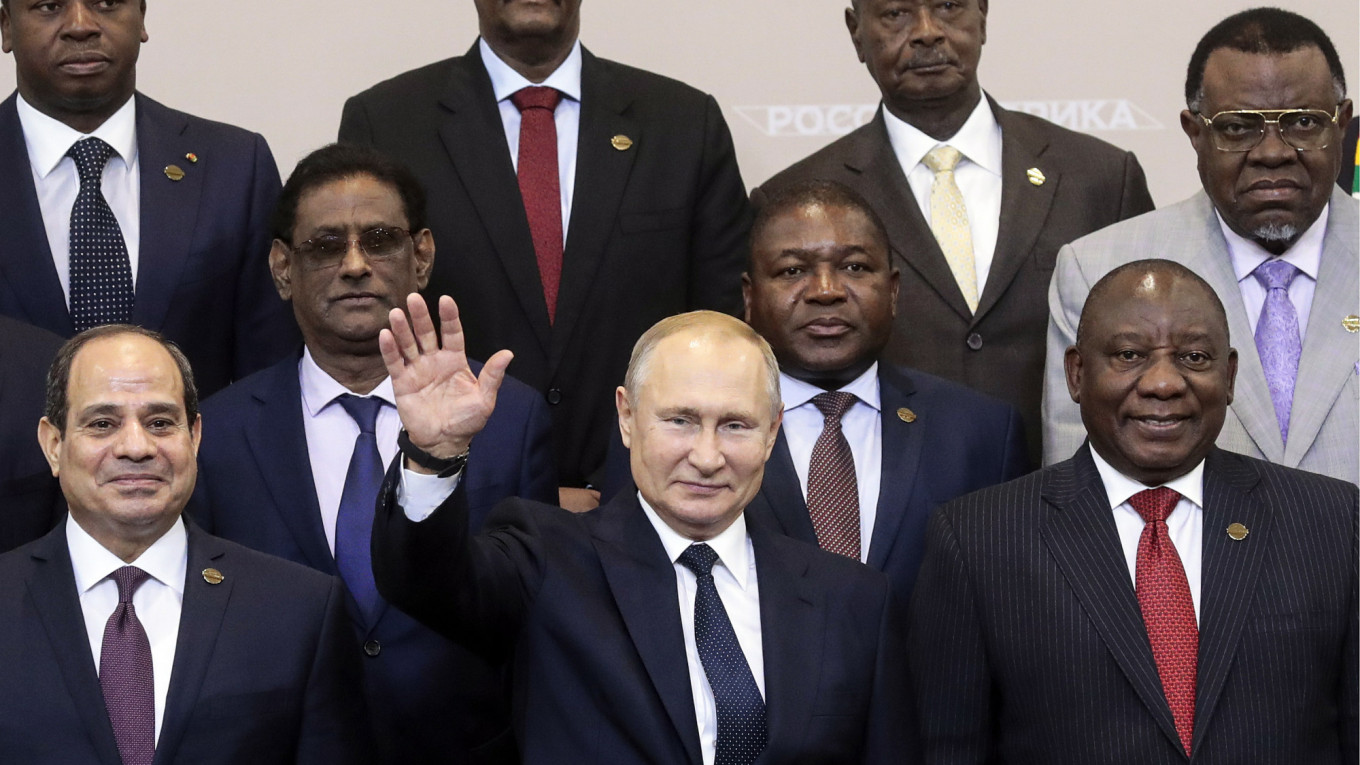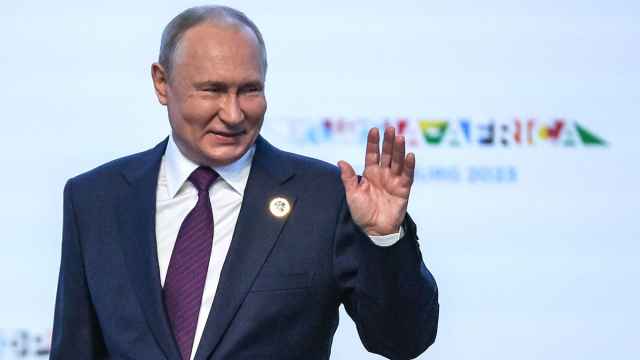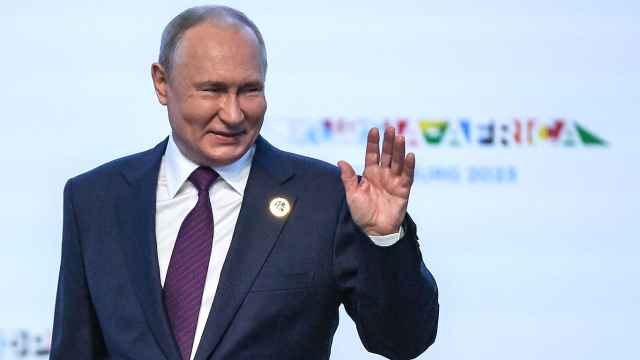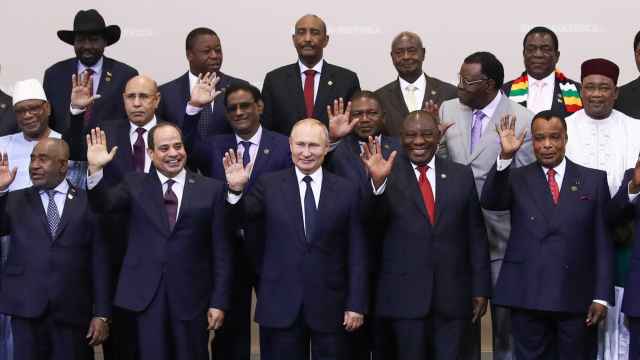Russia is proposing to move toward ending the ban on selling so-called blood diamonds from the Central African Republic, a former French colony that’s struck recent military and commercial ties with Moscow, amid resistance from the U.S. and Europe.
The CAR, which is mired in civil conflict, should be granted a “road map” outlining the steps it needs to take to get the suspension of diamond sales lifted, Russian Deputy Finance Minister Alexei Moiseev said in an interview in Moscow.
“We need to ensure that illicitly traded diamonds move to the legal marketplace, bringing income for people and taxes for the state,” Moiseev said. “The situation in CAR isn’t getting any better, and we can’t delay this any more.”
Russia’s pressing for action as President Vladimir Putin seeks to challenge the U.S. and other major powers in a new push to restore Soviet-era influence in the resource-rich African continent. He hosted more than 50 African leaders in the first Russia-Africa summit in October and his ally Yevgeny Prigozhin’s mercenary venture is active in about a dozen countries, including the CAR.
Russia next year takes over the rotating chair of the Kimberley Process, a group of countries and non-governmental organizations that monitors the trade in diamonds to avoid illegal armed groups benefiting from it. The CAR was blacklisted in 2013, though the embargo was eased slightly three years later with the establishment of government-run “green zones” where the precious stones are mined.
Russia argues that the full export of CAR diamonds, whose registered sales have slumped to 39,000 carats a year from 300,000 carats prior to the ban, would benefit the impoverished nation of 5 million, where residents continue to be involved in the illicit diamond trade. They have no other choice and “they get very little money for their work” as the smuggled gems fetch much lower prices, said Moiseev.
First Step
The Indian-chaired plenary of the Kimberley Process in New Delhi last month agreed to grant the CAR government the right to issue certificates for the export of rough diamonds from the green zones. Previously, the precious stones could be exported only after approval from the international group’s monitoring team. The Russian Finance Ministry called this a “first step” toward the legalization of CAR diamonds.
“Our proposals don’t reflect commercial interests,” Moiseev said. “I know certain participants are starting to introduce politics into the discussion of this issue. Particularly now, when diamonds are being smuggled from the CAR, there are many benefiting from the situation.”
The CAR is “very much in agreement” with Russia’s proposal, Communications Minister Ange-Maxime Kazagui said by phone. “We think the embargo should be lifted across our nation.”
The European Union won’t support the lifting of the restrictions without a “convincing” indication, including by United Nations experts, that gems are mined in conflict-free zones and that the CAR authorities can guarantee full control over exports, the EU said in an emailed statement. “This is not currently the case,” it added.
Russian activities in the CAR appear to seek to “exploit the country’s fragile institutions and weak rule of law rather than supporting good governance, transparency and sound economic growth,” the U.S. State Department said by email.
Neither the EU nor the U.S. responded to a request for comment on the specific Russian proposal for a “road map” enabling the CAR to meet the criteria for lifting the embargo.
Putin’s Chef
Russia deployed military personnel in the CAR after obtaining a UN waiver early last year to arm and defend the government, which appealed for help after France ended a three-year peacekeeping mission. Putin’s ally Prigozhin has also dispatched contract fighters to the country and appointed an associate as official security adviser to President Faustin Archange-Touadera, according to Russian media reports. Prigozhin didn’t respond to an emailed request for comment via his Concord catering company.
In return for assistance, Prigozhin secured gold and diamond concessions in the CAR, the reports say. Three Russian journalists murdered in the CAR in mid-2018 were investigating Prigozhin’s activities, according to exiled tycoon Mikhail Khodorkovsky, who funded their trip.
While Russia seems unlikely to swing opinion within the Kimberley Process behind lifting the embargo on the CAR, which would require a consensus, the initiative marks a crisis for the legitimacy of the international mechanism to keep the trade in diamonds clean, according to activists.
“Russia is effectively saying the process has failed completely and is no longer of use,” said Joanne Lebert, executive director of Impact, a Canada-based NGO that quit the Kimberley Process in 2017, arguing the certification process gave consumers false confidence that diamonds are coming from non-conflict areas.
Russia’s trying to bring the CAR’s exports into line with the Kimberley Process, which aims to help the country “start trading diamonds legally” rather than outlaw sales permanently, the Finance Ministry’s press service said in a phone message.
A Message from The Moscow Times:
Dear readers,
We are facing unprecedented challenges. Russia's Prosecutor General's Office has designated The Moscow Times as an "undesirable" organization, criminalizing our work and putting our staff at risk of prosecution. This follows our earlier unjust labeling as a "foreign agent."
These actions are direct attempts to silence independent journalism in Russia. The authorities claim our work "discredits the decisions of the Russian leadership." We see things differently: we strive to provide accurate, unbiased reporting on Russia.
We, the journalists of The Moscow Times, refuse to be silenced. But to continue our work, we need your help.
Your support, no matter how small, makes a world of difference. If you can, please support us monthly starting from just $2. It's quick to set up, and every contribution makes a significant impact.
By supporting The Moscow Times, you're defending open, independent journalism in the face of repression. Thank you for standing with us.
Remind me later.






